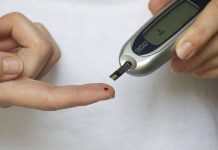While most women transition through pre-menopause in their 40s, some experience symptoms as early as their late 30s. During this time, women may experience significant changes to their body and well-being as their ovaries are depleted of eggs and estrogen levels begin to decline. When they go through their pre-menopausal season of life, women will begin to experience a large variety of symptoms. Knowing what to expect, how to ease the symptoms, and when to see your doctor can help reduce and alleviate some of the negative effects of perimenopause.
“According to experts from the Mayo Clinic, “If you have a persistent change of seven days or more in the length of your menstrual cycle, you may be in early perimenopause.”
The Most Obvious Early Menopause Symptoms

Irregular periods is one of the first and most obvious symptoms. According to experts from the Mayo Clinic, “If you have a persistent change of seven days or more in the length of your menstrual cycle, you may be in early perimenopause. If you have a space of 60 days or more between periods, you’re likely in late perimenopause.”
Other early symptoms include hot flashes, breast tenderness, sleep problems, mood changes, weight gain, and vaginal dryness. Some women also report changes in cholesterol levels and sexual function, though these symptoms vary in severity among women.
What You Need to Do if You are Experiencing Early Menopause Symptoms
“healthy emotional support is important for women going through pre menopause symptoms.”
Whether you are experiencing occasional hot flashes, unexplained weight gain, or frequent changes in your mood, it’s never too early to share your concerns with your healthcare provider, who can help answer your questions and steer you toward the best treatment options. If you planned on having children, make sure to speak with your doctor about your pre and post menopausal family planning preferences and choices.
In addition, healthy emotional support is important for women going through pre menopause symptoms. Sharing your experiences with a trusted counselor, friends, or your partner can help alleviate some of the emotional burden of pre-menopause and help you feel more prepared and in control.
“Drinking 8-12 glasses of water a day can also help reduce dehydration and bloating as well as slightly improve a slowed metabolism.”
How to Ease the Negative Effects of These Symptoms?
Unfortunately, pre-menopause has no cure. However, careful planning and consideration can help ease some of the negative effects. Most experts recommend eating diets full of lean protein, calcium, healthy fats, and plenty of fruits and vegetables to help diminish the bulk of the symptoms, including high levels of cholesterol. Drinking 8-12 glasses of water a day can also help reduce dehydration and bloating as well as slightly improve a slowed metabolism.

Taking supplements proven to help with pre-menopausal symptoms can also mitigate the negative effects you may be experiencing. A 2003 study published by the National Center for Biotechnology Information asserts that Vitamin D supplements can lower the risk of hip fractures in menopausal women, thereby alleviating the symptom of bone loss that can occur.
When to See Your Doctor?
Starting in your late 30s or early 40s, your primary health care physician should begin discussing your likelihood of pre menopause symptoms for which you should be looking. However, you should see your doctor immediately if your periods are heavier than usual and produce blood clots, if your sleep disturbances are disrupting your day, or if your mood changes feel excessive.

According to Dr. Stephanie Faubion, editor of The Mayo Clinic Menopause Solution, “If you are experiencing premature or perimenopause, you’re at risk for multiple long-term health consequences, including heart disease, dementia, Parkinsonism, and osteoporosis. Your health care provider can help determine if you are, indeed, experiencing premature or early menopause.” Self-diagnosis of pre-menopause may cause you to overlook an underlying problem that could be unrelated to menopause or to miss a potential treatment option.
While some pre-menopause symptoms are harder to detect, knowing the obvious signs can help equip you to research and understand the aging process. As your hormones levels change and your menstrual cycle reduces its consistency, healthy changes in your diet can help ease your symptoms.
“For most women, however, the emotional fluctuations experienced during perimenopause are disconcerting rather than dangerous. Still, they are enough to affect your interactions with family and friends. And even your relationship with yourself,” says Denise Webb, PhD, RD. The effects of pre-menopausal symptoms can sometimes feel overwhelming. However, with awareness and self-care, those symptoms can be eased or diminished.
Sources & References:
https://www.mayoclinic.org/diseases-conditions/perimenopause/symptoms-causes/syc-20354666
https://www.healthline.com/nutrition/11-natural-menopause-tips
https://www.ncbi.nlm.nih.gov/pubmed/12540414





















